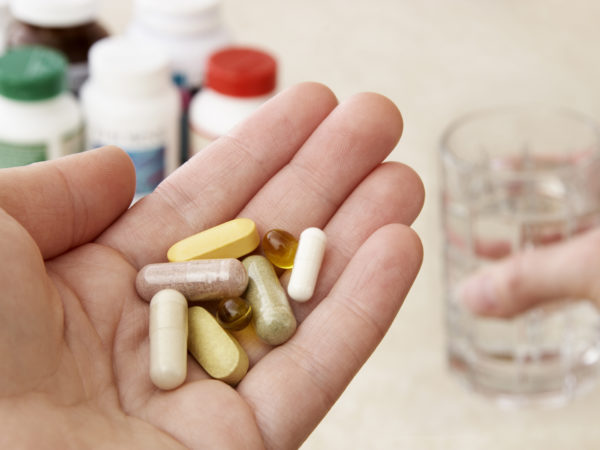What's the Point of Probiotics?
Should I be taking a probiotic? I know you recommend them to people taking antibiotics, but are there other reasons to take them regularly? I have no health problems, and I want to keep it that way.
Andrew Weil, M.D. | July 16, 2007

Probiotics are products containing the helpful bacteria that normally inhabit the human digestive tract. In the intestinal tract, these beneficial microbes help complete the digestive process, and some actually produce vitamins. There’s even evidence that without them, the immune system can’t work properly, lessening resistance to infection.
Most of these friendly bacteria occur naturally in cultured milk products, such as yogurt with active cultures or acidophilus milk and kefir, as well as natural pickles and sauerkraut. However, concentrations in these foods may not be high enough to do you any good. Instead, when you’re on antibiotics, I recommend taking probiotics in liquid or capsule form. Some antibiotics wipe out “friendly” intestinal bacteria along with the bad bugs that cause infections. Symptoms of this change can include diarrhea, cramping, bloating or other unpleasant digestive symptoms.
Antibiotics can also upset the bacterial balance in the female genital tract leading to vaginal yeast infections or in the mouth where overgrowth of yeast causes thrush.
I also recommend probiotics for relief of the symptoms of irritable bowel syndrome, Crohn’s disease, and ulcerative colitis. When there’s a family history of allergy or eczema, babies given probiotics in their first six months of life (and whose mothers took probiotics during the last trimester of pregnancy) are less prone to eczema. Children with autism can also benefit from probiotics, possibly because they decrease leakage of large molecules from the gut that can trigger immune reactions with effects on brain function.
When I travel in underdeveloped countries, I take probiotics to reduce the risk of traveler’s diarrhea. The dose is one tablespoon of the liquid culture or one to two capsules after meals unless the label directs otherwise. Always check the expiration date to make sure that the bacteria these products contain are alive and in good condition and look for probiotics with “colony forming units” (CFUs) in the billions. After you buy, be sure to protect your supply from heat, moisture, and air.
The other concern is whether the kinds of bacteria in probiotic supplements can survive passage through the strongly acid environment of the stomach and make it into the lower GI tract. I’ll soon be introducing a product containing Bacillus coagulans (BC-30), that is able to do this. Other effective strains are Lactobacillus GG and some Bifidobacterium.
Andrew Weil, M.D.









